Upgrade to full Dispatch membership to unlock the full version of this newsletter—and unlimited access to all our reporting and analysis. Join The Dispatch today.
Happy Monday! It’s Bastille Day! Time to bust out your Champagne, brie, baguettes, and, if you’re feeling particularly revolutionary, liberty caps!
Quick Hits: Today’s Top Stories
- Ukrainian intelligence agents shot and killed two Russian agents suspected of murdering Col. Ivan Voronych, a high-ranking officer in Ukraine’s Security Service (SBU), officials with the agency said Sunday. Voronych was shot and killed in broad daylight on Thursday by a gunman dressed in black clothing, an attack Ukrainian officials believe was plotted by Russia’s Federal Security Service. The SBU’s head, Vasyl Malyuk, said that intelligence operations located the “lair” of the two suspected Russian agents, a man and a woman. “During their arrest,” Malyuk added, “they began to resist, there was an exchange of fire, and the scoundrels were eliminated.” Meanwhile, Russia launched 597 drones and 26 cruise missiles into Ukraine on Friday night, primarily targeting western Ukrainian cities. Two civilians in Chernivtsi, located near Ukraine’s border with Romania, were killed in Russia’s air assault.
- Iranian President Masoud Pezeshkian, the country’s second-highest-ranking official behind its Supreme Leader Ali Khamenei, suffered minor injuries from an Israeli airstrike in Tehran last month, Iranian state-sponsored media reported on Sunday. On June 16, the fourth day of Israeli air attacks in Iranian territory, Israel struck an underground facility where Pezeshkian was located. While the airstrike blocked the facility’s entry points and cut off its ventilation system and electricity, Pezeshkian escaped through an emergency shaft, sustaining slight leg injuries. Meanwhile, Axios reported on Sunday that Russian President Vladimir Putin urged Iranian officials to stop their enrichment of uranium as terms for a prospective U.S.-Iranian nuclear deal.
- The Israel Defense Forces (IDF) said on Sunday that a “technical malfunction” caused an airstrike carried out earlier that day in central Gaza to miss its intended target. According to officials with the Hamas-run Gaza health ministry, the airstrike hit a water distribution site located near a refugee camp, killing 10 people, including six children. The IDF said it had targeted a terrorist in the area, but a munition malfunction caused it to miss “dozens of meters away from the intended target.” Meanwhile, Palestinian officials told the BBC that negotiations with Israel for a ceasefire and hostage release deal could collapse, accusing Israeli officials of deliberately stalling talks to “project a false image of progress.” The Trump administration’s special envoy to the Middle East, Steve Witkoff, said Sunday he planned to meet with Qatari mediators at the FIFA Club World Cup later that day to discuss the Israel-Hamas negotiations.
- President Donald Trump on Saturday announced a new 30 percent tariff on all imported goods and services from Mexico and European Union nations, effective August 1. Any retaliatory tariffs the EU or Mexico levies on U.S. exports will be matched, Trump said, and added to the 30 percent tariff rate. In a letter posted on Truth Social, Trump claimed that the U.S.’s negative trade deficit with the EU and Mexico—which merely signals that the value of goods and services imported to the U.S. from those places is greater than the value of what we export to them—were “unsustainable,” and that the new tariff helps ensure “fair trade.” He also pointed to the smuggling of fentanyl across the U.S.-Mexican border, stating, “Mexico has been helping me secure the border, BUT, what Mexico has done, is not enough.”
- The State Department began mass layoffs on Friday, reportedly terminating 1,107 civil servants and 246 U.S.-based foreign-service officers. According to an internal State Department notice obtained by Reuters, the workforce reduction was “carefully tailored to affect non-core functions, duplicative or redundant offices, and offices where considerable efficiencies may be found.” Secretary of State Marco Rubio announced a “reorganization” plan for the State Department in April, and, while a federal district judge temporarily blocked its implementation last month, the Supreme Court on Tuesday reversed that ruling.
- The Senate Homeland Security and Governmental Affairs Committee, comprising eight Republicans and seven Democrats, released a report on Sunday summarizing its investigation into the July 2024 attempted assassination of Trump in Butler County, Pennsylvania. The investigators found that the Secret Service had denied “multiple requests” from Trump’s campaign for additional security staff and resources, agents had “failed to communicate crucial information,” and that duties for some high-ranking agents were “ill-defined.” It further accused former Secret Service Director Kimberly Cheatle of lying to Congress, a claim that Cheatle said on Sunday was “patently false.” A separate report released Saturday by the independent, nonpartisan Government Accountability Office, issued at the request of GOP Sen. Chuck Grassley of Iowa, stated that the Secret Service “failed to implement security measures that could have prevented the assassination attempt” in Butler County.
- Attorney General Pam Bondi on Friday fired at least 20 Justice Department (DOJ) officials, including prosecutors, support staff, and U.S. marshals, who had worked for or assisted former special prosecutor Jack Smith’s investigations into Trump and his role in the January 6, 2021, Capitol riots, several news outlets reported. The Trump administration had already fired 14 prosecutors who worked with Smith on those investigations because, per a DOJ official, they “could not be trusted to faithfully implement the President’s agenda.” Meanwhile, on Saturday, Bondi announced that the DOJ had dismissed criminal charges against Kirk Moore, a Utah plastic surgeon who allegedly issued fake COVID-19 vaccination cards in exchange for either cash payments or donations to a charity.
- Federal District Judge Maame Ewusi-Mensah Frimpong ruled Friday that patrols of Immigration and Customs Enforcement (ICE) agents in Los Angeles had detained immigrants without “reasonable suspicion,” a violation of their Fourth Amendment rights. In a separate order that Frimpong issued that same day, she ruled that the federal government had denied detainees at a Los Angeles facility access to a legal representative—a violation of their Fifth Amendment rights—and ordered the Homeland Security Department to expand legal visitation hours and allow detainees a phone to contact their legal counsel. During court hearings, a DOJ attorney argued that no evidence suggests ICE agents consider race during arrests, and that the DHS has required “policy and training” to ensure Fourth Amendment compliance. Also on Friday, Federal District Judge Hernán D. Vera issued a temporary restraining order blocking ICE officials from deploying anti-riot projectiles and devices on journalists.
- In an interview with the New York Times published over the weekend, former President Joe Biden pushed back on his successor’s claims that many of the pardons Biden issued at the end of his presidency were illegitimate because they were signed using an autopen. “I made every decision,” Biden said, adding that the autopen was used given the volume of pardons. “The autopen is, you know, is legal. As you know, other presidents used it, including Trump. But the point is that, you know, we’re talking about a whole lot of people.” The Trump administration is investigating the pardons, and congressional Republicans have asked former Biden White House aides to testify on the matter.
Russia Escalates Drone Attacks on Ukraine
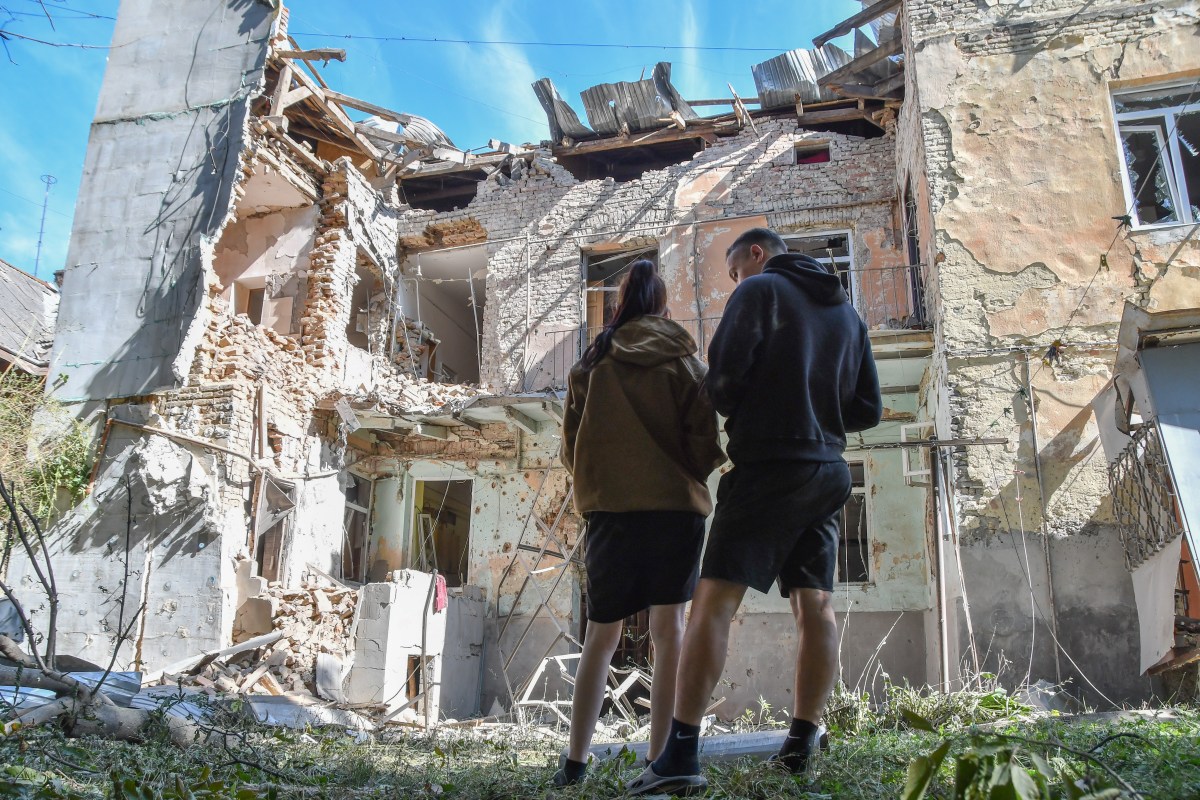
U.S. President Donald Trump famously began his second term having promised that he could end the war between Russia and Ukraine within a matter of days. But today is the 175th day of his presidency, and there’s still no end to the conflict in sight. As the war drags well into its third year, Trump’s patience with Russian President Vladimir Putin appears to be finally wearing thin, after directing most of his ire over the past several months at Ukrainian President Volodymyr Zelensky. But questions remain as to whether Ukraine can fend off a renewed Russian offensive, and whether the White House will follow through with its threats of getting tougher on Russia.
Last week, Trump, who has often described Putin as a willing negotiator, claimed that the administration had, during previous attempts at brokering a ceasefire, “a lot of bullsh–t thrown at us by Putin, if you want to know the truth.” It was a striking rhetorical turn from the infamous beginning of Trump’s second term, where he implied that Ukraine was at least partly at fault for starting the war and that Zelensky was an impediment to peace. Trump’s statements came during his most concrete pro-Ukraine intervention yet, albeit one that contradicted actions by his own Defense Department.
As a non-paying reader, you are receiving a truncated version of The Morning Dispatch. You can read our full item in the members-only version of TMD.
On July 1, Pentagon officials announced that certain weapons shipments, including some types of air defense weapons and field artillery shells, would be put on hold. The move followed a Pentagon review of U.S. weapons stockpiles, reflecting concerns by influential figures within the administration, such as Undersecretary of Defense for Policy Elbridge Colby, that the U.S. is stretching its supplies dangerously thin. “This decision was made to put America’s interests first following a review of our nation’s military support and assistance to other countries across the globe,” said Anna Kelly, a White House spokeswoman.
But just days later, the administration backtracked. Trump reportedly told Ukrainian President Volodymyr Zelensky during a July 4 call that he wasn’t responsible for the pause in shipments. “They have to be able to defend themselves,” he said the following Monday.
The about-face culminated with a statement by Pentagon spokesperson Sean Parnell that reversed the previous week’s announcement. “At President Trump’s direction, the Department of Defense is sending additional defensive weapons to Ukraine to ensure the Ukrainians can defend themselves while we work to secure a lasting peace and ensure the killing stops,” he said. When asked who had ordered the pause in the first place last week, Trump told a reporter, “I don’t know. Why don’t you tell me?”
The pause’s short duration means that it won’t have much of a battlefield effect, defense experts told TMD. “It’s not that serious,” said Mark Cancian, a senior adviser with the defense and security department at the Center for Strategic and International Studies, noting that many of the supplies put on hold are still in Europe, ready to be shipped to the front.
However, Trump’s promise to resume sending aid also won’t drastically change the balance of power. The pause affected weapons orders under contract with U.S. manufacturers; the only other way the U.S. could get weapons to Ukraine is to utilize presidential “drawdown authority,” essentially sending weapons earmarked for the U.S. military to Ukraine instead. On Thursday, Reuters reported that Trump would be using the authority for a future weapons shipment to Ukraine, the first time he has done so in his second term.
Resuming weapons shipments might not be the president’s only change of heart. Trump has been reluctant to impose economic penalties on Putin during the first few months of his presidency, significantly reducing sanctions enforcement and declining to target businesses and financial institutions linked to Russia. He has also pointedly refused to commit to supporting the Sanctioning Russia Act, a major new sanctions package that currently has more than 80 Senate co-sponsors and support from House Speaker Mike Johnson. But on Tuesday, Republican Sen. Lindsey Graham of South Carolina, the bill’s Senate sponsor, told reporters that Trump had told him it was “time to move” on the legislation. Trump has also said that he will be making a “major statement” concerning Russia later today.
The size and pace of Russian strikes on Ukrainian cities and towns have steadily increased in recent weeks, with the vast majority of ordnance delivered by “suicide drone”: relatively inexpensive propeller-driven models based on Iranian designs, capable of carrying a 90- kilogram warhead.
Russia used a record 728 drones in a single night last Wednesday, topping the high mark it set on July 4, when it used 529. Flying at a high altitude, and then diving down with a screaming wail similar to German dive bombers from World War II, the drones can cause extensive damage even if most fail to get through Ukrainian air defenses. On Saturday, even though Ukraine intercepted or jammed all but 20 of the 597 drones Russia launched at targets in western Ukraine, two civilians were killed, 20 were wounded, and homes, businesses, and municipal buildings were damaged in multiple cities.
Russia has become adept at manufacturing these drones en masse. Military analysts project that it will be able to launch 1,000 drones per strike by this fall, as factories placed on war footing by the government pump out Russian versions of the Iranian Shaheds, called Gerans, for less than $50,000 apiece. Continued attacks, while unlikely to decisively change the war’s balance, continue to sap civilian morale and stress Ukraine’s air defenses.
But Russia’s multifront offensive in eastern Ukraine, launched on May 1, presents a more severe threat. Russia currently has 50,000 troops attacking Sumy, a provincial capital and important logistical hub in Ukraine’s north. Russian forces are also pressing forward in the remaining portions of the Donetsk and Luhansk oblasts, in eastern Ukraine, that are not currently under their control.
The offensive was reportedly billed to Russian officers as “one last push” to break the back of the Ukrainian army, but the feasibility of that goal remains unclear. While Russian troops are gaining roughly 15 square kilometers of territory a day, their fastest pace in years, progress is still slow relative to the massive size of Ukraine’s east. And the cost of those small gains is high: Since the start of the summer campaign, according to The Economist, an estimated 31,000 Russian troops have been killed. “The Russian army has fallen far short of its command’s expectations for this summer,” Zelensky confidently proclaimed Sunday.
But Putin has resolved to press forward. To that end, many outside observers have characterized recent diplomatic efforts on Russia’s part as stalling for time. Trump administration officials have also recently downplayed the prospect of a diplomatic breakthrough anytime soon. Secretary of State Marco Rubio, who met with his Russian counterpart, Sergey Lavrov, on Thursday and Friday in Kuala Lumpur, said he would be bringing back a “new idea” for peace to the White House. “This new approach is not something that automatically leads to peace,” he said, “but it could potentially open the door to a path.”
Experts who spoke to TMD said that Russia currently feels that it can continue fighting for the next several years. “I think, based on the evidence we have currently, it looks like the Russian economy is not facing an imminent crisis,” said Nicholas Fenton, an associate director and associate fellow with the Europe, Russia, and Eurasia Program at the Center for Strategic and International Studies and the co-author of a recent report on the Russian economy. Through careful management of interest rates by the central bank and continued oil sales to countries like China and India, policymakers have managed to keep the country on a relatively stable war footing.
In the absence of greater pressure, either from the Ukrainian armed forces or their Western allies, Russian officials have shown no sign of backing down from their extensive war goals, which include mandated diplomatic neutrality for Ukraine, strict limits on the size of its military, and the annexation of multiple regions. Visiting Russian ally North Korea on Saturday, Lavrov told reporters that North Korea supported “all the objectives” of Russia in Ukraine. North Korea supplies Russia with ammunition and supplies, and thousands of its troops have fought alongside Russia against Ukraine.
“If we look at the words and actions of the current Russian leadership, it appears quite clear that they may remain committed to this war,” Fenton told TMD. “They remain committed to their ultimate political goals, which are limiting Ukrainian sovereignty.” He also noted that aside from the Sanctioning Russia Act, Trump currently already possesses multiple ways to sanction Russia, including by targeting financial institutions that do business with Russian firms.
Supporters of Ukraine, then, are awaiting Monday’s announcement with bated breath, as Trump’s willingness to impose sanctions, and the exact contours of the military aid package, remain unclear. “The game, regarding Putin’s invasion of Russia, is about to change,” Graham said on Sunday in an interview with CBS News’ Face the Nation. We’ll see if he’s right.
Today’s Must-Read
Technology has bought us back hours, days—maybe even weeks—each year. But most people I know don’t feel like they have more time. In fact, they feel more pressed for time, more anxious about how they’re spending it, and more distracted than ever. The very tools that promised to liberate us from the mundane have heightened our sense of urgency and restlessness. We’re free from errands but tethered to our screens. The result isn’t freedom; it’s a new kind of tyranny—one governed not by tasks, but by the expectation that every moment be optimized.
Toeing the Company Line
What Do We Do With Art Made by Immoral Artists?
It’s complicated. But the answer requires good questions.
The Uses of Cringe
Shamelessness as a political asset.
Artificial Unintelligence
AI is only as bigoted as we make it.
A New Era for An Old Idea?
The nullification doctrine shows signs of life.
Trump Administration Shifts to ‘Trade, Not Aid’ in Africa
Chaos and conflicting strategies have marked a pivot to commercial diplomacy.
‘Not Afraid to Work’
Blue-collar jobs come with challenges—and rewards.
Can Americans Love Poetry Again?
How we lost poetry for the people—and how we can get it back.
Your Stuff Is Mine Now | Solo
Na na na na boo boo, I live better than you do.
The Bad-Faith Problem | Interview: Jamie Weinstein
How to interview a bad-faith actor.
Worth Your Time
- What does the Kremlin’s recent ramping up of its military drone production mean for Ukraine and NATO allies? Jillian Kay Melchior reported from Kyiv for the Wall Street Journal. “It’s 8:30 p.m. Friday, and I’m writing from my hotel’s bomb shelter, relieved I got here fast. We had only about 20 minutes’ notice before the explosions started,” she wrote. “A wailing baby is among those taking refuge down here.” Airstrikes are common in Ukraine, but the attacks are growing more powerful. “To put the size of these attacks in context, the Kyiv Independent reports that through the entire month of June 2024, Russia launched a total of 332 drones. Last week Moscow launched more than twice that number in a night. Experts here estimate that Russia is producing between 100 and 170 drones daily.” She continued, “Russian drones have the range to hit NATO members. Are the allies ready? Ukrainian experts say no. … Ukraine’s air-raid warning app features alerts recorded by Mark Hamill, who played Luke Skywalker in Star Wars. ‘Don’t be careless,’ he warns. ‘Your overconfidence is your weakness.’ That advice served me well on Friday night, and it would serve the West well as it thinks about the emerging drone threat.”
- After torrential flash floods ripped through central Texas last week, good Samaritans have worked together to help some of the survivors of an all-girls summer camp, including helping them reunite with beloved stuffed animals. “There were stuffed lambs and monkeys, bears and lovies, lifelong favorites meant to soothe the children who were staying at the Christian girls camp in the Texas Hill Country,” Caitlin Gibson wrote in the Washington Post. After many were lost from the floods, she explained, “one all-volunteer nonprofit organization, Lost Stuffy Project, is trying to bring every small measure of comfort possible to families affected by the flood—by replacing the treasured stuffed animals, blankets and other comfort items that were carried away by the raging Guadalupe River. The first request came from the parents of one of Camp Mystic’s youngest campers, the little girl who brought Ruff Ruff, the stuffed dog. … So Lost Stuffy Project went to work: They posted a photograph of Ruff Ruff to their Instagram, where more than 33,000 followers were ready to help. The group included the brand (Gund) and name (Muttsy) of the dog, and bands of internet sleuths immediately set out to track down a replacement. They succeeded, Jaffe says, within about 10 minutes: ‘We were able to return the dog to the family in under two days.’”
Presented Without Comment
Donald Trump, in a post on Truth Social on Saturday:
LET PAM BONDI DO HER JOB — SHE’S GREAT! The 2020 Election was Rigged and Stolen, and they tried to do the same thing in 2024 — That’s what she is looking into as AG, and much more. One year ago our Country was DEAD, now it’s the “HOTTEST” Country anywhere in the World. Let’s keep it that way, and not waste Time and Energy on Jeffrey Epstein, somebody that nobody cares about. Thank you for your attention to this matter!
Also Presented Without Comment
Axios: Trump Could Potentially Fire [Federal Reserve Chairman Jerome] Powell Over Fed Renovations, [National Economic Council Director Kevin] Hassett Says
Also Also Presented Without Comment
New York Times: U.S. Subpoenas Governor [Phil Murphy of New Jersey] Who Said He Would House Migrant at His Home
In the Zeitgeist
Sunday was the 40th anniversary of the 1985 Live Aid concerts in London and Philadelphia, which brought together some of the era’s most famous artists, bands, and singers.
Queen’s 21-minute performance at the Live Aid concert in London’s Wembley Stadium remains one of the greatest sets of all time.
Let Us Know
Are you encouraged by President Trump’s apparent shift on the Ukraine war?




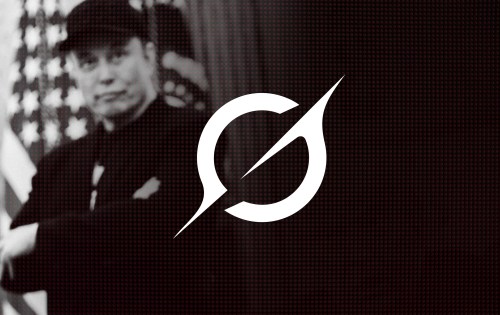










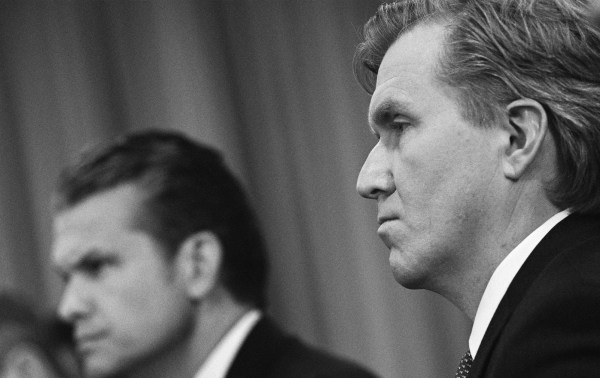
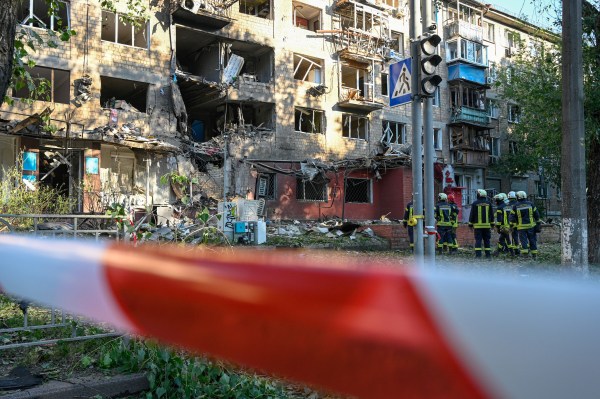

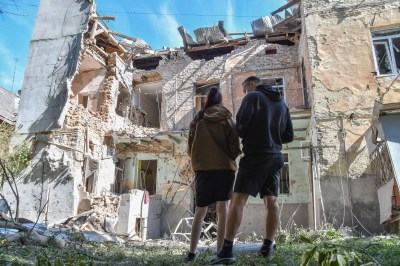
Please note that we at The Dispatch hold ourselves, our work, and our commenters to a higher standard than other places on the internet. We welcome comments that foster genuine debate or discussion—including comments critical of us or our work—but responses that include ad hominem attacks on fellow Dispatch members or are intended to stoke fear and anger may be moderated.
With your membership, you only have the ability to comment on The Morning Dispatch articles. Consider upgrading to join the conversation everywhere.